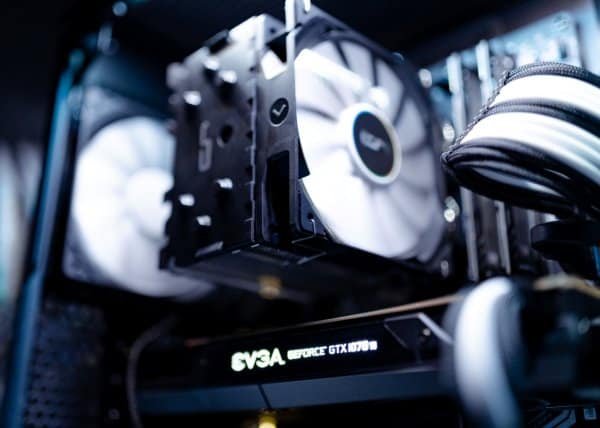Intel and AMD are in the CPU business, and both have products on the market that are worth your consideration if you’re in the market for a new computer processor.
Both companies offer great chipsets and you can’t go wrong with either one of them. The question is: which one do you prefer – Intel or AMD? If you’re unsure, here are three things to consider as you make your decision.
Intel and AMD are both giants in the computer processor market, but only one of them will come out on top when you’re deciding what to buy. Intel has been in the game longer,
Intel Vs AMD – Which One to Choose
But AMD makes up for that by providing powerful processors at lower prices than Intel. Which one you choose depends on your needs, so consider these things before making your decision.
The Intel and AMD battle has been ongoing since the early 2000s, but it can be challenging to figure out which company offers the best product when it comes to desktop processors and graphics cards.
This article will help you better understand this complex battle, making it easier to choose the best option for your needs.
Whether you’re looking to upgrade your current hardware or are just starting to build a computer from scratch, here’s everything you need to know about the Intel Vs AMD war.
Performance
Intel processors are better than their rival AMD in almost every way, but it’s not so simple as Intel being always better. The rivalry between these two companies has been heated for decades, but today there is much more of a level playing field than ever before.
That said, there are still clear-cut cases where one company’s processors will outperform another.
A laptop with an Intel processor tends to be faster than one with an AMD chip, while gaming PCs tend to use both Intel and Nvidia graphics chips (Nvidia and AMD are closely related).
And desktop computers are typically better off with an Intel CPU (except for enthusiasts who want lots of cores).
But whether you pick Intel or AMD comes down largely to price. If you’re shopping on a budget, AMD could have your best option,
If you don’t need great performance right now but know that future projects might require it, Intel might make sense. In either case, remember that specifications only tell part of the story doesn’t go by clock speed alone. Core count, architecture, and graphics all matter too.
Finally – make sure that your preferred brand includes drivers for Windows 10 before buying anything new!

Battery Life
Intel processors are best known for their performance, while AMD is traditionally thought of as a budget-friendly option.
Intel is your brand of choice if you want your computer or laptop to perform as quickly as possible and don’t mind spending more money.
If you’re looking for an affordable device, the other hand, AMD might be a better option. Even though its processor chips have only recently started catching up with Intel, there are still lots of devices available at all price points that feature an AMD processor.
In addition to being significantly cheaper than Intel processors, they can also save you money on energy bills because they use less power in general, especially if you opt for an APU instead of a CPU alone.
Value
Intel is great for productivity work, while AMD may make more sense for gaming. If you’re not into gaming or don’t need a lot of computing power, then Intel will likely be your best choice.
But if you do want to play games or need processing power, then you should consider looking at an Intel-based PC with a GPU (graphics card) from Nvidia instead of one from AMD.
It all depends on what it is that you’re trying to do. Most average users probably don’t need anything over 4GB of RAM 8GB will suffice.
Design & Build Quality
When it comes to raw power, AMD and Intel are both solid options. But if you’re looking for a high-quality system that’s going to last, go with Intel, their processors tend to be made more sturdily than AMD chips, which means they stand up better over time. Meanwhile,
If you want a new PC ASAP or don’t care about longevity, then AMD is probably your best bet their processors tend to get benchmarked faster than Intel’s.
Again, both companies make quality parts but if it were us, we’d lean toward investing in an Intel processor if longevity is our biggest concern.
Warranty & Customer Support
If a product fails or requires replacement during its warranty period, manufacturers will often replace or repair it for free.
Be sure you are aware of your rights as a consumer and understand how long your warranty lasts.
Most computer equipment should come with a standard 1-year warranty from the date of purchase, but check in case you need more protection than that.
Remember that extended warranties aren’t always worth it (and can be expensive), so do your research on whether or not purchasing one is necessary before making a decision.
You might also consider buying products from companies that offer good customer support, as they may have better warranty policies in place if something does go wrong with your hardware.

Pingback: How To Choose A Motherboard » Best Gaming Laptops Super Mart
Pingback: Best AMD Processors USA 2022 » Best Gaming Laptops Super Mart